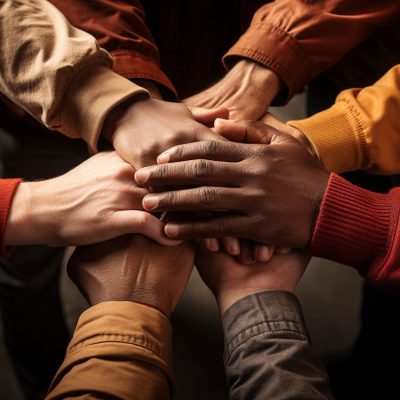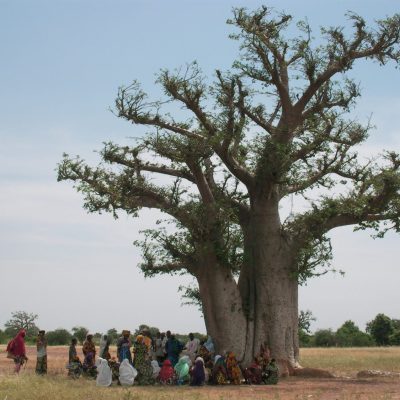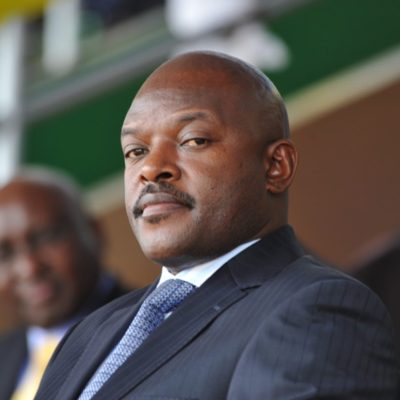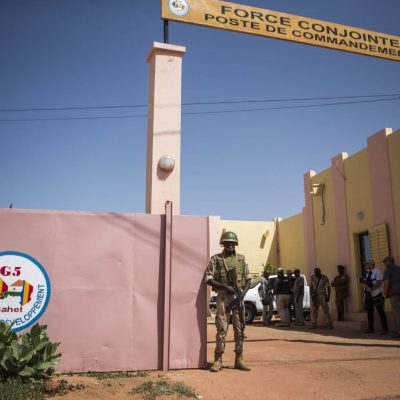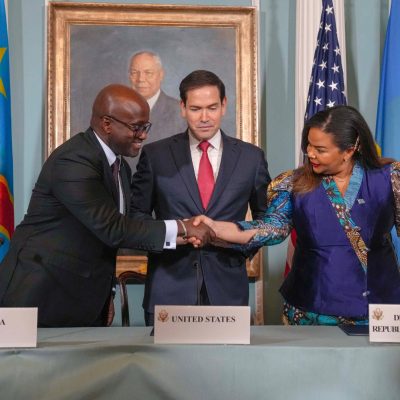National dialogues have become an increasingly important conflict management tool in countries facing political instability, conflict, or transitions of power. In many African contexts, it is often seen as a last resort by national stakeholders, an attempt to prevent complete collapse or to guide a nation through a significant political shift. Unlike traditional negotiations that usually involve only political elites or those in power, national dialogues are designed to be more inclusive. They bring together a wide range of voices from across society, including opposition groups, civil society, religious leaders, and community representatives. In recent years, this approach has gained prominence in Africa as a response to ongoing crises. While the outcomes of national dialogues have been mixed, they are generally seen as opportunities to reset national priorities, address long-standing grievances, and open pathways toward reform and reconciliation.
This article examines the role of national dialogues in Africa’s fragile states, where contested power, deep divisions, and the risk of state collapse shape the political landscape. In such situations, national dialogue has emerged as a way to manage diversity, resolve conflict, and create space for inclusive reform. The article explores how these dialogues navigate power struggles and whether they offer a meaningful path toward long-term stability.
Conceptualising national dialogue
One way to understand national dialogues is through their definition as ‘nationally owned political processes aimed at generating consensus among a broad range of national stakeholders in times of deep political crisis, in post-war situations or during far-reaching political transitions.’[1] National dialogues serve as formal mechanisms for addressing significant national challenges, particularly those stemming from persistent political, social, or economic tensions. They are typically initiated during times of crisis, such as after uprisings, armed conflict, or political deadlock, and are meant to provide an inclusive space where a broad range of actors can engage in open negotiation. National dialogues serve as a crucial method for conflict resolution by providing a platform for dialogue between opposing parties. While they may not always achieve their intended objectives, they can still prevent the escalation of tensions and encourage continued participation in the political process.
An example often highlighted when discussing successful national dialogues is Tunisia’s 2013 process. Following the 2011 revolution, the country faced severe political tension, especially between Islamist and secular groups. The crisis deepened after the assassinations of two prominent opposition leaders, leading to mass protests. In response, four major civil society organisations came together to launch what became known as the National Dialogue Quartet. These groups, independent of the ruling parties, were trusted by the public and seen as neutral mediators. They created a space for political rivals to engage in dialogue, which helped prevent further escalation.[2]
The dialogue resulted in the resignation of the ruling government, the formation of a caretaker cabinet, the adoption of a new constitution, and free elections in 2014. The Quartet’s efforts helped steer Tunisia away from violence and toward a peaceful political transition. In 2015, their role was recognised with the Nobel Peace Prize.[3] Tunisia’s national dialogue remains a rare example of inclusive, civil society-led mediation that successfully supported democratic change in the aftermath of the Arab Spring.
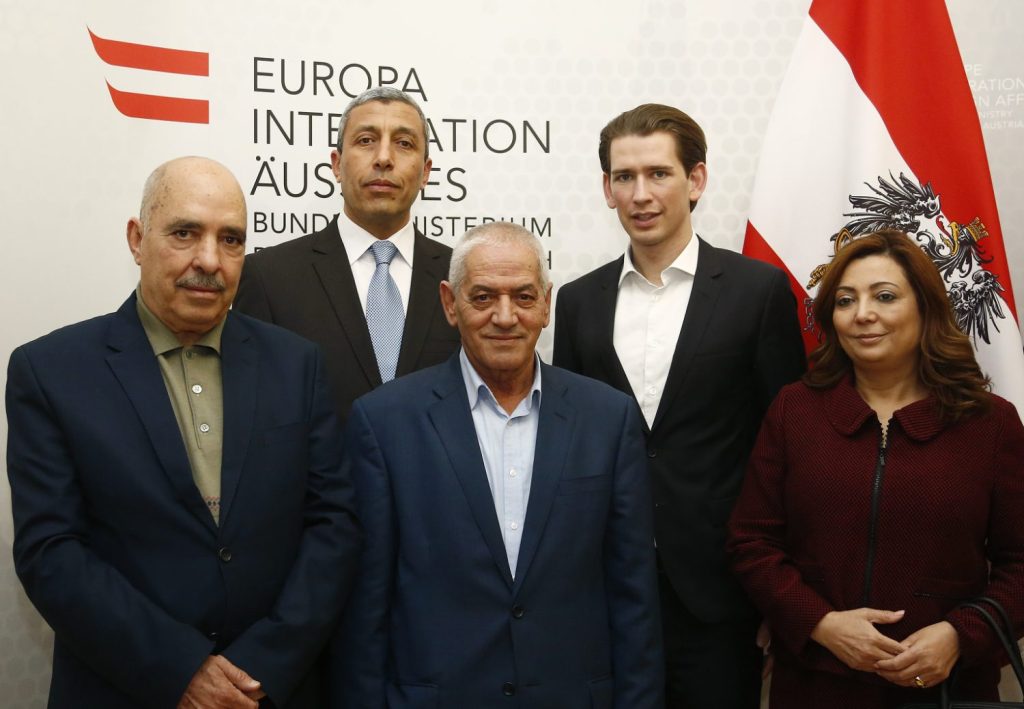
Fragility, conflict, and the threat of state collapse
The concept of fragility is often linked to a combination of challenges, including weak or unstable governance, failure to deliver basic services or meet essential needs, widespread and chronic poverty, limited control over national territory, and a heightened risk of conflict or civil war.[4] In these settings, governments often struggle to maintain authority or enforce laws. Basic services like healthcare, education, and infrastructure are either poorly delivered or entirely absent, leaving large parts of the population without vital support. Poverty is widespread and deeply entrenched, making it difficult for people to break out of cycles of hardship. Many fragile states also lack full control over parts of their territory, with some areas falling into the hands of armed groups or operating outside the reach of the state. Corruption and weak institutions add to these problems, as public resources are often misused and trust in leadership breaks down. Together, these conditions create a fragile environment where tensions can quickly grow, increasing the risk of unrest or violent conflict.
Fragility in sub-Saharan Africa has been shaped by long-standing historical and structural issues. European colonial powers created institutions built for domination and resource extraction, not inclusive governance. After independence, many states inherited these systems but struggled to reform them. Combined with deep ethnic diversity and scattered populations, this has made it difficult to build strong, unified states. The result has often been weak institutions, limited state reach, and persistent instability.

Some major drivers of fragility in most African states are:
- Bad governance: Poor governance is a major driver of fragility in many African countries. Fragile states often lack coherent economic policies, are led by authoritarian regimes, and offer limited space for democratic participation. Opposition parties are suppressed, the media is restricted, and politics tends to exclude rather than include. This weakens institutions, deepens poverty, and erodes political pluralism. In such conditions, public grievances grow, and unresolved socio-economic issues fuel ongoing instability and conflict.[5]
- Competition for natural resources: Natural resources often play a complex role in fuelling fragility and conflict. In many fragile states, violence is not caused simply by the presence of valuable resources like land, water, or minerals. Rather, it is how these resources are contested and politicised. Countries such as Angola, the Democratic Republic of the Congo, Sierra Leone, and Sudan illustrate how abundant natural wealth can become a source of instability. Competition for control over these resources frequently becomes entangled with political power struggles. Rather than being managed in the public interest, valuable resources are often controlled by those in power and used to reward allies and maintain influence. This uneven access can breed resentment, especially among those excluded from decision-making or economic opportunities. In such situations, opposition groups may view violence, protests, or even coups as the only way to challenge entrenched leadership.[6]
- Inequality and economic exclusion: In many fragile African states, inequality plays a central role in driving instability. Wealth and public resources often favour certain ethnic or political groups, while others are left out. Rural communities, in particular, tend to be sidelined, with services like education concentrated in urban areas. When revenues from natural resources are high, these imbalances often grow worse. Over time, this kind of exclusion breeds frustration and mistrust, creating fertile ground for unrest[7]
In fragile states, where political tensions can rapidly turn violent, national dialogue offers a chance to defuse conflict and pursue peaceful solutions. When implemented effectively, it can foster vital reforms, enhance governance, and rebuild trust in state institutions. To be truly successful, however, the dialogue must be inclusive, transparent, and supported by impartial mediation that ensures fair representation and outcomes. It can also be used in different ways depending on the situation. In the short term, national dialogues can help prevent or resolve crises by easing tensions, breaking political deadlocks, and avoiding violence, as seen in Tunisia. In the long term, such processes can contribute to a broader redefinition of the relationship between the state and society. A notable example is Yemen, where the National Dialogue Conference brought together a wide range of actors from various sectors of the country. The conference concluded with a series of recommendations and consensus agreements intended to serve as the foundation for a new constitution[8]. [A1] However, the implementation of the constitution failed due to the persistence of political and social instability that ultimately undermined the transition process.
National dialogues and power-sharing in fragile democracies
National dialogues often serve as critical entry points for negotiating power-sharing arrangements and constitutional review in fragile democracies grappling with deep divisions and legitimacy crises. By creating inclusive platforms for dialogue among political elites, opposition groups, and civil society, these processes can help redefine governance structures and foster consensus on transitional frameworks.[9]
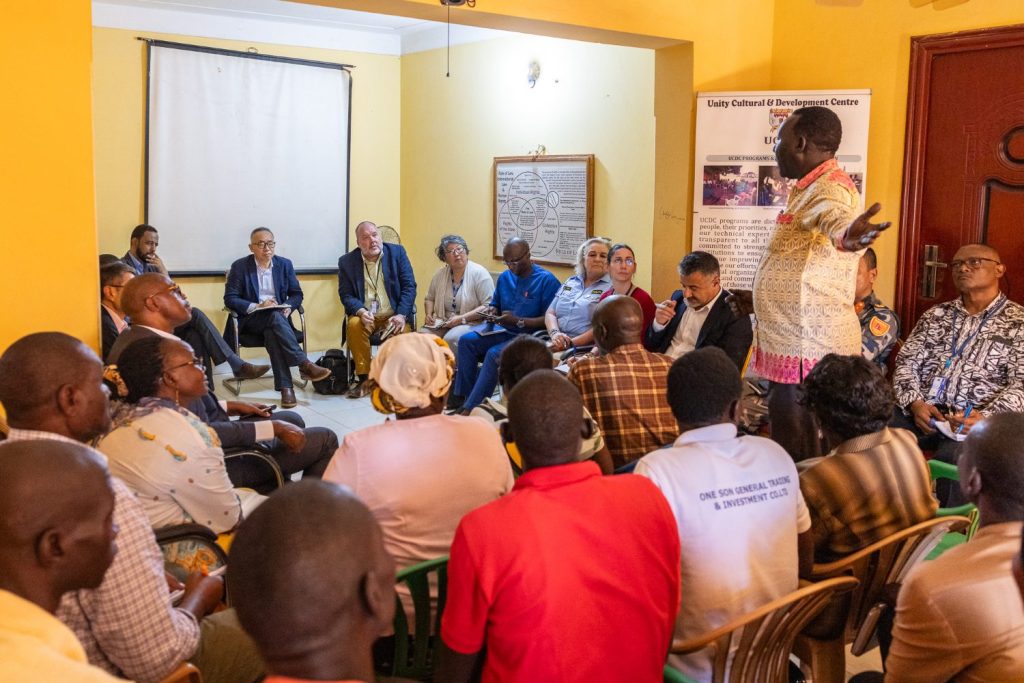
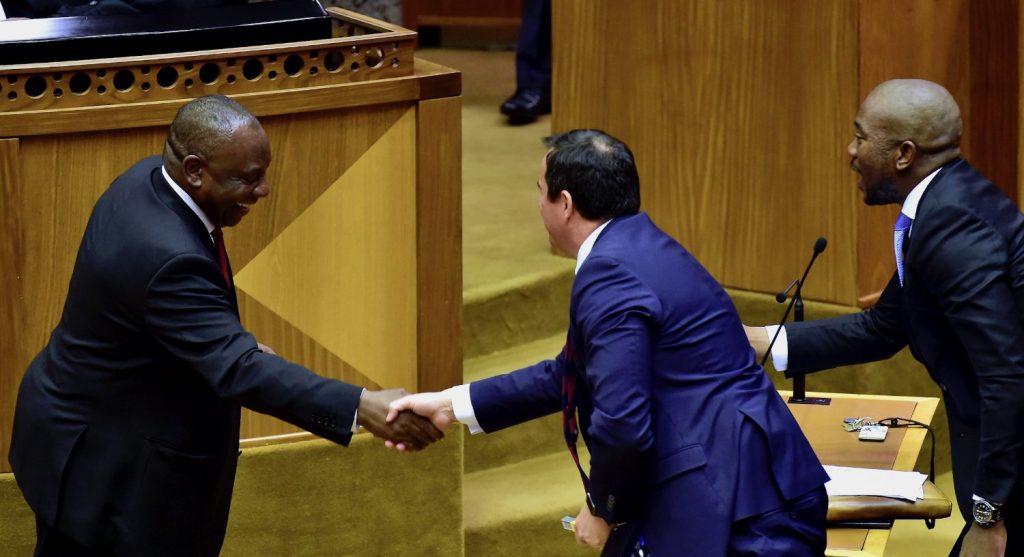
However, some critics argue that power-sharing is often an unstable and temporary solution that merely conceals deeper societal conflicts rather than resolving them.[10] Arend Lijphart emphasises that in ethnically plural societies, conventional majority-rule democracy can reinforce exclusionary practices. In such contexts, inclusive power-sharing becomes a necessary, though inherently fragile, mechanism for governance. Building on this critique, power-sharing arrangements often fail to address the root causes of conflict. Their effectiveness depends largely on internal dynamics, such as how violence and its effects are distributed among groups and the degree of cohesion among political elites. Lijphart’s work identifies distinct patterns ranging from distrust to collusion that emerge in different contexts. He shows that where elite actors lack mutual trust or continue to wield violent power, unity governments are less likely to produce meaningful reform or long-term stability.[11]
In light of the critical limitations of power-sharing frameworks, particularly their fragility, tendency to mask rather than resolve conflict, and overreliance on elite bargains, national dialogues offer a more inclusive and transformative mechanism for conflict resolution. Unlike power-sharing arrangements that often reinforce existing divisions, national dialogues, when grounded in participatory principles and inclusive engagement, seek to address structural grievances, rebuild trust, and lay the foundations for sustainable peace.
This analysis is grounded in a conceptual framework that combines social contract theory, consociationalism, and conflict transformation. Social contract theory underscores the need to (re)negotiate the legitimacy and obligations between the state and its citizens. Consociationalism helps explain the role of institutional arrangements in managing diversity, while also highlighting the risks of elite dominance. Conflict transformation theory, in turn, focuses on addressing the root causes of violence and reshaping relationships for long-term change. Together, these theories frame national dialogues not as temporary fixes, but as proactive platforms for societal renewal – particularly vital in fragile democracies where the legitimacy of state institutions is contested. These theoretical underpinnings enrich the design and implementation of national dialogues, making them not just reactive political tools, but proactive platforms for genuine societal transformation, particularly crucial in fragile democracies where the legitimacy of the state is often in question.[12]
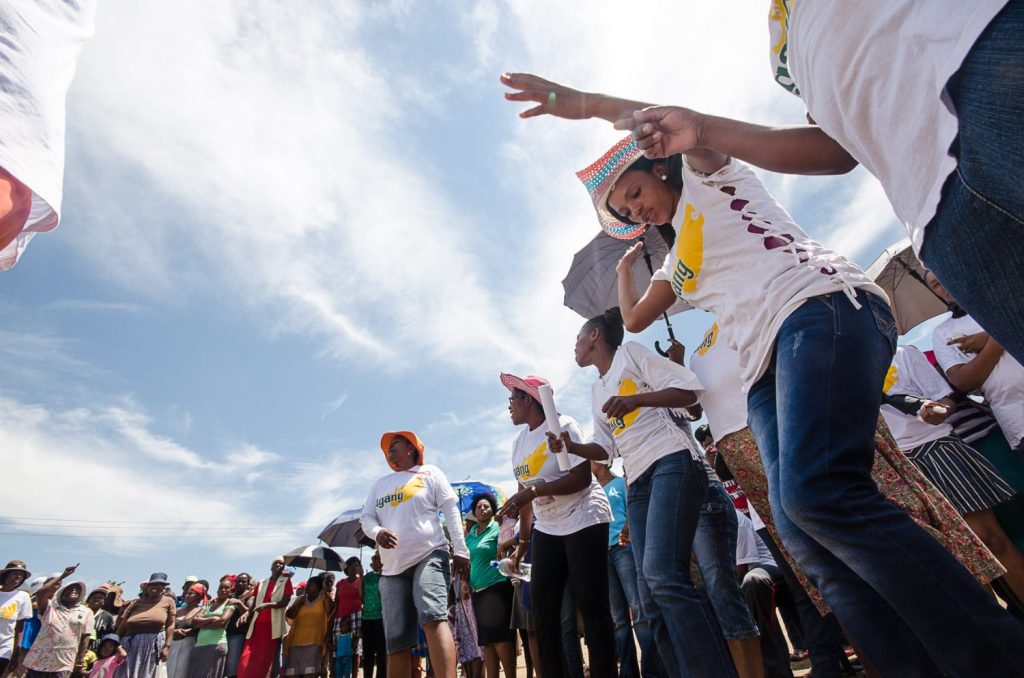
Managing diversity and national dialogues
In fragile political states, managing diversity through national dialogues has become a vital mechanism for promoting inclusive governance, addressing identity-based grievances, and building national cohesion amidst deep-rooted divisions. While exclusive negotiations have traditionally dominated peace processes, often driven by the need to swiftly engage the primary belligerents and avoid the perceived complexities that broader participation may introduce, such approaches frequently fall short of addressing the root causes of conflict. There is a growing shift toward inclusive national dialogues, underpinned by both normative and pragmatic considerations. Normatively, inclusion is seen as a democratic imperative, promoting long-term participatory culture and ensuring that peace processes are morally and ethically grounded.
From a pragmatic standpoint, including a diverse range of actors enables national dialogues to transcend narrow elite interests and instead raise broader societal concerns, leading to more comprehensive and transformative outcomes. Such inclusivity helps reduce the risk of spoilers by integrating potentially marginalised groups and promoting moderate voices within contentious political spaces. Moreover, by enhancing transparency and accountability, inclusive dialogues ensure stronger public buy-in and increase the likelihood of implementing agreed provisions. Therefore, in contexts of fragility where state legitimacy and social trust are low, inclusive national dialogues offer a powerful tool for managing diversity, advancing reconciliation, and laying the foundations for sustainable peace and democratic governance.
Prospects for reform and sustainable peace: What makes national dialogues work?
While earlier sections have established the rising prominence of national dialogues as mechanisms for resolving governance crises and enabling political transitions in fragile and divided societies, it is important to critically assess the conditions under which these dialogues succeed or fail. Although they are often designed to promote inclusive political reform, transform conflict, and reconstruct a more representative social contract, their outcomes have varied widely. In many cases, dialogues have struggled to translate broad participation into concrete, sustainable agreements or to ensure effective implementation. This variation underscores the need to examine the internal and external factors – such as legitimacy, inclusivity, elite commitment, and international support—that shape their effectiveness across different contexts.
A growing body of research highlights that the success or failure of national dialogues is not determined solely by their initiation or intentions, but rather by a complex interplay of political context and process-related factors. Paffenholz et al. argue that six political context variables—namely, the support or resistance of national elites, public engagement and perception, the role of regional and international actors, a pre-existing culture of dialogue, past negotiation experiences, and the presence or absence of violence – critically shape the environment in which dialogues unfold.[13]
Equally important are six process-related factors that pertain to the design and operationalisation of the dialogue itself. These include the criteria and procedures for selecting participants, the decision-making mechanisms employed, the choice and capacity of mediators or facilitators, the duration of the dialogue, the presence of support structures for participants, and the extent of coalition-building among actors. Together, these elements influence the representativeness, legitimacy, and inclusivity of the process, thereby affecting the likelihood of reaching agreements that are both sustainable and implementable. Thus, this offers a nuanced and evidence-based understanding of what makes or breaks national dialogues, emphasising that both the surrounding political landscape and the internal mechanics of the process must be strategically addressed to enhance prospects for success.
Conclusion
National dialogues in Africa’s fragile states have emerged as critical instruments for navigating political transitions, managing diversity, and averting the collapse of already weakened state institutions. Amidst deep-rooted structural inequalities, contested legitimacy, and recurring cycles of violence, these dialogues offer a rare opportunity for inclusive engagement across social and political divides. However, their outcomes have been highly uneven, shaped by entrenched power struggles, the behaviour of national elites, and the degree to which processes are genuinely inclusive and locally owned.
Both the political context—particularly elite support, public trust and external influences – as well as the structural design of the dialogue process, such as representation, facilitation, and decision-making mechanisms, are decisive in determining whether national dialogues succeed or fail. In Africa’s fragile states, where political fragmentation and exclusion often fuel instability, the effective management of diversity and equitable power-sharing through well-structured and supported national dialogues can serve as a bulwark against state disintegration.
Yet, for these dialogues to contribute meaningfully to sustainable peace and state resilience, they must move beyond symbolic participation and be embedded in broader frameworks of political will to undertake institutional reform and long-term peacebuilding efforts. Without addressing the underlying drivers of conflict and exclusion, national dialogues risk becoming yet another contested arena for elite competition rather than a platform for transformative change.
References
[1] Berghof Foundation (2017) ‘National Dialogue Handbook A Guide for Practitioners’, Available at: https://www.jointpeacefund.org/files/documents/berghof_foundation-national_dialogue_handbook.pdf [Accessed 14 April, 2025], p. 21.
[2] Borger, J. (2015) ‘Who are the Tunisian national dialogue quartet?’ The Guardian, 9 October, Available at: https://www.theguardian.com/world/2015/oct/09/who-are-the-tunisia-national-dialogue-quartet-nobel-peace-prize-winner[Accessed 10 April, 2025].
[3] Ibid.
[4] European Union (2009) ‘Overcoming Fragility in Africa. European Report on Development’, Available at: https://capacity4dev.europa.eu/media/12573/download/629c604c-6c2b-4967-9a23-ff481a795f72_en [Access 10 April, 2025].
[5] Ncube, M. & Jones, B. (2013) ‘Drivers and Dynamics of Fragility in Africa’, Africa Economic Brief, 4(5), 1–15.
[6] Vllings, C. & Morenno-Torres, M. (Eds) (2005) ‘Drivers of Fragility: What Makes States Fragile?’ Pride Working Paper No. 7.
[7] Cilliers, J., & Sisk, T. D. (2013). Assessing long-term fragility in Africa. Institute for Security Studies. https://www.files.ethz.ch/isn/174496/Monograph188.pdf [Accessed 10 April,2025].
[8] Xii Paffenholz, T., & Ross, N. (2016). Inclusive Political Settlements: New Insights from Yemen’s National Dialogue. PRISM, Vol. 6(No. 1), 201–203. https://www.inclusivesecurity.org/publication/inclusive-political-settlements-new-insights-from-yemensnationaldialogue/#:~:text=The%20mandate%20of%20a%20National,the%20findings%20of%20the%20NDC[Accessed 10 April, 2025].
[9] Hearn, S. (2016) Independent review of the new deal for engagement in fragile states. Center on International Cooperation.
[10] Wolff, S. (2007) ‘Conflict resolution between power sharing and power dividing, or beyond?’ Political Studies Review, 5(3), 377–393.
[11] Lijphart, A. (2007) Thinking about democracy: Power sharing and majority rule in theory and practice, London: Routledge; Cheeseman, N. (2013) ‘The internal dynamics of power-sharing in Africa’, In: Democratization in Africa: Challenges and Prospects (pp. 62–91), London: Routledge.
[12] Mandikwaza, E. (2024) ‘A Conceptual Framework for National Dialogues: Applied Theories and Concepts’, African Journal on Conflict Resolution, 24(2), 7–28.
[13] Paffenholz, T., Zachariassen, A. & Helfer, C. (2017) ‘What makes or breaks national dialogues?’ Inclusive Peace & Transition Initiative, Graduate Institute of International and Development Studies.
[A1]New inclusion


